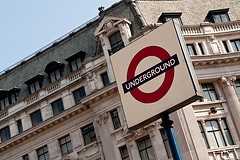
Using media to advance your English skills
by Marylol
Learning a new language can be an exciting and life-changing experience. It can open up doors to new opportunities you may never have considered.
Why choose English as a second language?
English is a diverse language that will enable you to access many new cultures. When studying a second language, it is important that you understand your motivation for learning and set yourself achievable goals to monitor your progress.
As with any new challenge, there will be easier times and tougher times, so keeping track of your progress will help you remain confident on your journey to fluency.
It’s all in the ear: listening tips
Another excellent tip is to listen to English radio as often as you can. Dramas, soap operas and comedies can help you develop a much better understanding of colloquial English and how to apply the terms to social situations. Knowing when to use certain inflections can be very important if you want to develop a more naturally sounding spoken language that is modern and easy to use in everyday situations.
Conversing with native English speakers as often as possible will mean your language skills develop faster. However, there are many other things you can do if you can’t meet up with someone in person. Telephone conversations can make for excellent practice, as you can hear how the language should sound. Often colloquial English usage differs from that taught in the classroom, so it is important to listen to how the language is used in everyday situations.
A great way to expand your learning is to listen to how English sounds when spoken through media channels such as news reports, podcasts, or even your favourite type of music.
Easy ways to improve your vocabulary
Watching your favourite TV show in another language can also help you set new words in the right context. Trying to pick up the plot, and associate key words and phrases, is a great way to expand your vocabulary.
There is nothing like practising to speed along your progress and allow you to reach your targets, but there are some easy ways to boost your exposure to English.
Reading national newspapers, as well as reading fiction or non-fiction books in English, can also improve your understanding of the language. Reading a book you know well, or a text book on a subject you are familiar with, can really help reinforce what you already have learned.
One more modern way of learning is to play online word games to help develop written and reading skills.
In which city would you most like to study English?
The advantages of studying English abroad
If you are looking to take a fast-track approach and you want to take a course in England, there are many reputable language schools that can help you achieve your goals.
St George International is one school of English London offers that has courses designed for anyone wanting to get to grips with the language.
There really is no better way to learn English than to enrol on a course where you can throw yourself into the language and make lots of new friends.
Why not study English in London with StGeorges.co.uk or another language school to really develop your skills.
Resource Box
BBC Radio
The BBC offers a varied programme of radio news and drama on its website.
UK Newspapers
At Kiosko.net you can find links to the major daily newspapers from around the world.
You might also like
British English Phrases, Idioms, and Expressions (Letters A-C)By Mira at Wizzley. Some of my favorite words and phrases that are particular...
10 essential business English phrasesThere are plenty of important terms and phrases crucial to conducting busines...






 How to speak French like a Parisianon 01/14/2013
How to speak French like a Parisianon 01/14/2013
 The 2 ultimate gourmet treats for children’s birthday partieson 06/15/2012
The 2 ultimate gourmet treats for children’s birthday partieson 06/15/2012
 Don't look like a fumbling touriston 12/05/2011
Don't look like a fumbling touriston 12/05/2011
 DIY women – doing it themselveson 11/02/2011
DIY women – doing it themselveson 11/02/2011


Comments
I agree that watching a TV show in another language is a great way to do it! :D Radio should also be great. Everyone is raving about Radio 4 but I can't have it here. I suppose it might be streaming online, but I'd like to have it in the kitchen.
Hi Mivvy, thank you for stopping by :) Yes, I've been a Radio6 fan for a couple of years now and it helped me a lot with my English!
You are so right about listening to the radio. I have been a Radio4 fan since the 1960s, when it was still called the Home Service. I listen to Radio 4 on long wave, which has also made me a cricket fan, because they take over on match days.